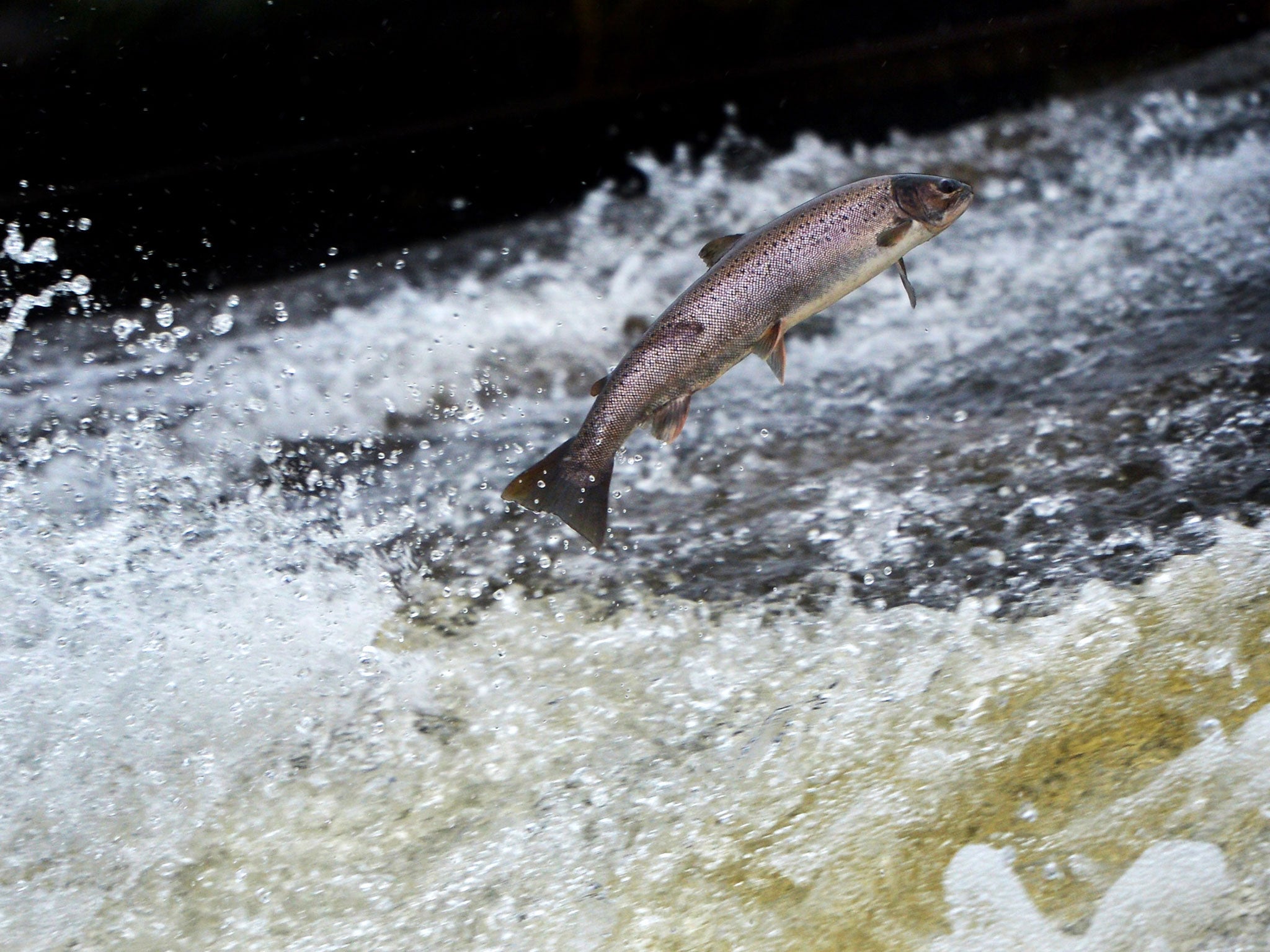Sterilise farmed salmon to save wild species, critics say
Millions of farmed fish escape globally each year, destroying wild salmons' genetic traits

Farmed salmon escaping into rivers and the sea are posing such a threat to declining wild populations that sterilisation should be compulsory, researchers have concluded.
Millions of farmed salmon are able to escape globally each year and there is increasing evidence they are destroying genetic traits evolved by the wild populations.
More than 95 per cent of the world’s Atlantic salmon, Salmo salar, are farmed, and a new study assessing their breeding capacity has found that the farmed stocks are just as fertile as the wild populations. They are also more aggressive, helping them out-compete their wild rivals.
Scientists now fear that wild populations will be damaged irreversibly, losing traits that have evolved to keep them adapted to their environment, unless sterilisation is introduced as mandatory.
Publication of the study comes just days after it was confirmed that more than 150,000 fish escaped the Ness of Copister farm in Shetland when the net cages containing them were damaged in the January storms.
Rainbow trout are already routinely sterilised by the aquaculture industry. However, in salmon farming, which is worth £600 million annually in Scotland, the treatment increases the chances of the fish developing cataracts or deformities.
Professor Michael Gage of the University of East Anglia, who led the study published in the journal Evolutionary Applications, said the threat to wild populations is serious enough that the industry should reconsider its opposition to sterilisation.
“The industry ought to grasp it for its own good,” he said, arguing that while research might be needed to find ways of reducing the risk of health problems caused by the treatment, it “is potentially viable to sterilise”.
He said: “Around 95 per cent of all salmon in existence are farmed, and domestication has made them very different to wild populations, each of which is locally adapted to its own river system.
“Farmed salmon grow very fast, are aggressive, and not as clever as wild salmon when it comes to dealing with predators. These domestic traits are good for producing fish for the table, but not for the stability of wild populations.
“The problem is that farmed salmon can escape each year in their millions, getting into wild spawning populations, where they can then reproduce and erode wild gene pools, introducing these negative traits.”
The Scottish salmon industry creates employment for more than 6,000 people but its success has put it at loggerheads with anglers.
According to a study published last year, 25 per cent of wild salmon in Scotland’s western Highlands and Islands were hybrids. Similar research in Norway, which also has a big aquaculture industry, has found that up to 50 per cent of salmon in a river were hybrids.
Guy Linley-Adams, of the Salmon and Trout Association which believes the spread of disease from fish farms is damaging wild stocks, said: “If the salmon farming industry is going to insist on placing hundreds of thousands of farmed fish in floating cages, it must guarantee that the equipment is fit for purpose and that farmed fish do not escape.
Scott Landsburgh, the chief executive of the Scottish Salmon Producers’ Organisation, denied there was much of a risk from escaped fish. “The survival rate of farmed salmon in the wild is virtually zero. There is no evidence that escaped fish have created any actual problems whatsoever for wild salmon.” He added that research into sterilisation “continue to return serious questions in terms of fish welfare implications and economic viability”.
Join our commenting forum
Join thought-provoking conversations, follow other Independent readers and see their replies
Comments
Bookmark popover
Removed from bookmarks